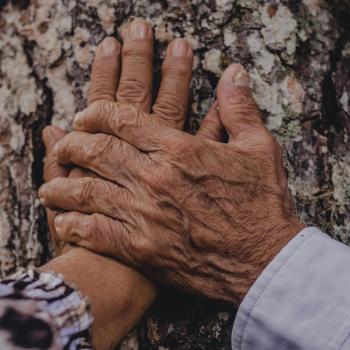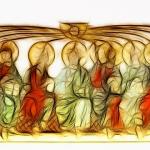Who was ‘Immanuel’, the child referred to in Isaiah 7-9? I’m not asking who it has been applied to – I know that the answer to that question is Jesus. I’m asking what the most likely reference is in the book’s original context. Clearly it makes no sense to have Isaiah offer as a sign to king Ahaz that the kings he is worried about will be no more by the time a child is born seven centuries from then.
Nor is the sign said to be anything to do with the child’s birth. Rather, the sign is that before the child is chewing solid food or saying his first words, the present threat will be over. The key issue is thus not whether the Hebrew word means ‘virgin’ or ‘young woman’, since nothing is made of the mode of conception. Even if the woman was a virgin at the time, virgins get pregnant (usually through a loss of virginity), and so that question has nothing to do with the fact that the sign is the time frame rather than the mode of conception.
It is possible that the child was Hezekiah – a royal heir would certainly be a great sign. But more likely is that the child in question was Isaiah’s own son, Maher-Shalal-Hash-Baz (not to be confused with this one, or this one). If one objects that he was not named Immanuel, I respond “Neither was Jesus” – in Matthew’s Gospel, the verse from Isaiah is quoted, and then they name the child Jesus. Immanuel was the child’s significance, and not the name he actually bore, in either case.
The mentions of Immanuel/God is with us surround the mention of Maher-Shalal-Hash-Baz (who from time to time secretly wished they had named him ‘Immanuel’). The birth of a child is predicted. The birth of a child is mentioned. The meaning of the symbolic birth is consistent. Immanuel=Maher-Shalal-Hash-Baz, in the original context – case closed?
The contemporary perspective has three ‘wise men’ (i.e. scientists) who have posted on things to do with virgin births in the past few days:
http://scienceblogs.com/evolgen/2007/12/whats_the_deal_with_virgin_bir.php
http://scienceblogs.com/digitalbio/2007/12/did_she_or_didnt_she_genetic_t.php
http://scienceblogs.com/gregladen/2007/12/the_bible_as_ethnography_05_th.php
Open Theology has an article about Mary of Nazareth, with whom this passage from Isaiah was later associated.
Finally, let me wish all readers a happy Hannukkah, and to local ones and others to whom it may apply: enjoy the first snow!
















